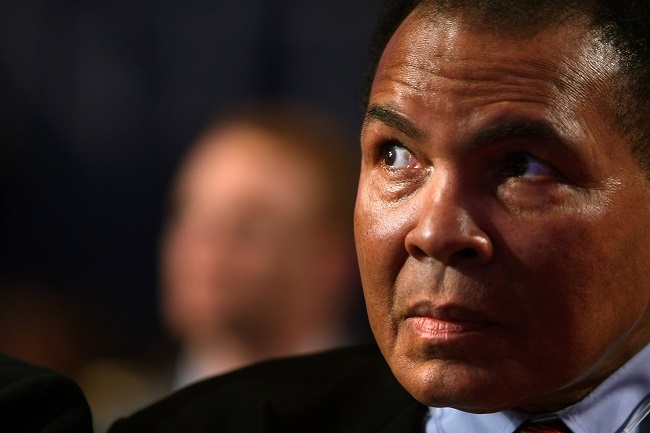Muhammad Ali, the three-time heavyweight champion who proclaimed himself “the Greatest”, defied the US government over the Vietnam war, and later became one of the most well-known – and loved – sportsmen in history has died.
Ali died late on Friday at a hospital in Phoenix, Arizona, the family’s spokesperson Bob Gunnell said. His funeral will take place in his home town of Louisville, Kentucky.
Ali was admitted to hospital on Thursday with a respiratory problem – a move that was described at the time as “a precaution”. However, reports emerged 24 hours later which said he had been placed on a life support machine and his family “feared the worst”.
Ali had become increasingly frail since being diagnosed with Parkinson’s disease in 1984, aged 42, and in recent years had limited his public appearances. Earlier this month his brother Rahman Ali revealed that the condition was so advanced he could barely speak or leave his house.
As a sportsman he will be remembered for many classic fights – in particular beating the fearsome Sonny Liston to become champion; the Fight of the Century and the Thrilla in Manilla against Joe Frazier, and the Rumble in the Jungle in 1974 when, at the age of 32, he surprised everyone bar himself by cutting down George Foreman in Kinshasa to regain back his title.
Paying tribute after his death, Foreman wrote: “Ali, Fraser and Foreman we were one guy. A part of me slipped away.”
He told the BBC: “Muhammad Ali was one of the greatest human beings I have ever met. No doubt he was one of the best people to have lived in this day and age.”
Another former world heavyweight champion, Mike Tyson, wrote: “God came for his champion. So long great one.”
Tributes flooded in from the world of boxing, the wider sporting community and well beyond them. The former US president Bill Clinton described him as “courageous in the ring, inspiring to the young, compassionate to those in need, and strong and good-humoured in bearing the burden of his own health challenges”.
Ali’s influence out of the ring was no less marked. Having appalled white America by converting to the Nation of Islam and changing his name from Cassius Clay to Cassius X and then to Muhammad Ali, he later refused to be drafted into the army, telling reporters: “Man, I ain’t got no quarrel with them Vietcong.”
theguardian.com
M.T

